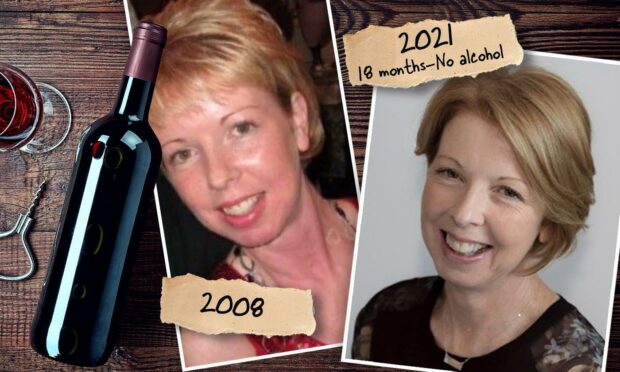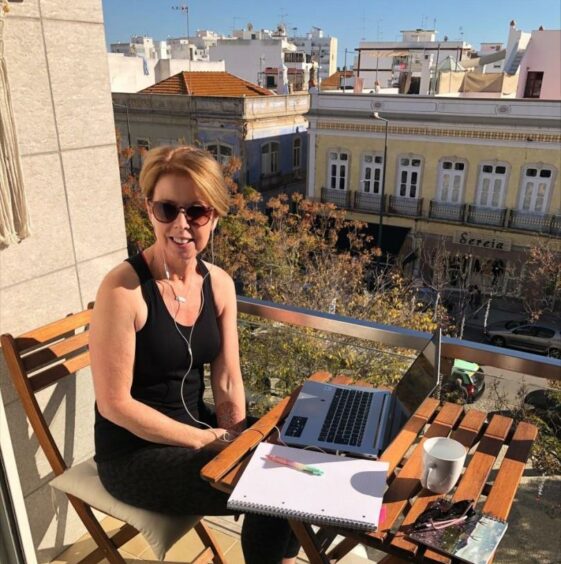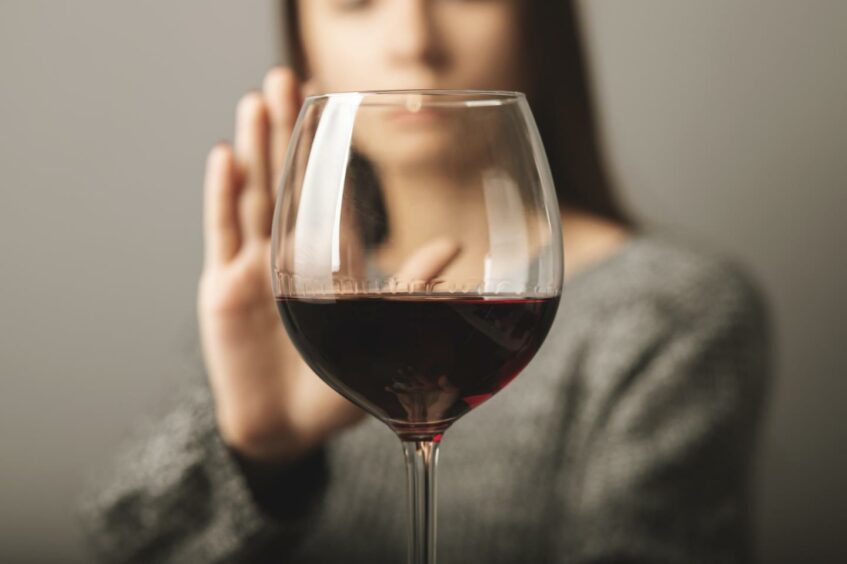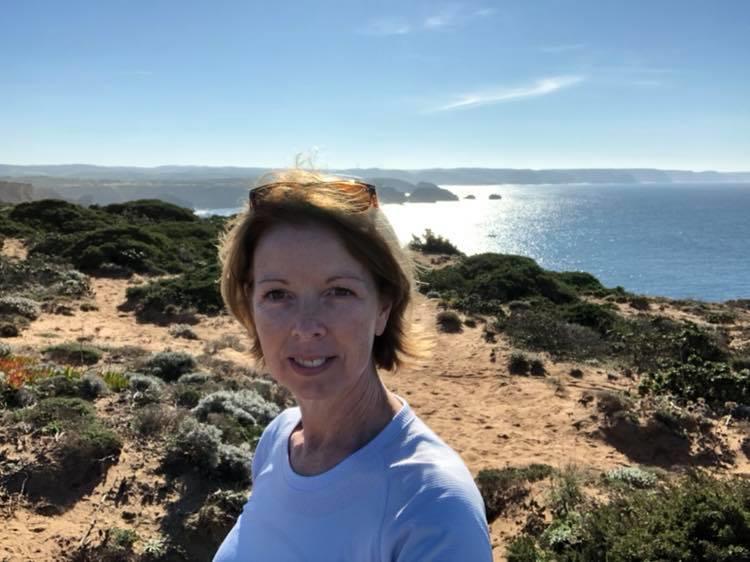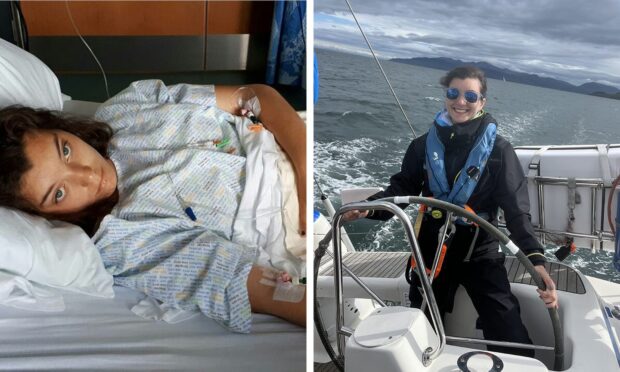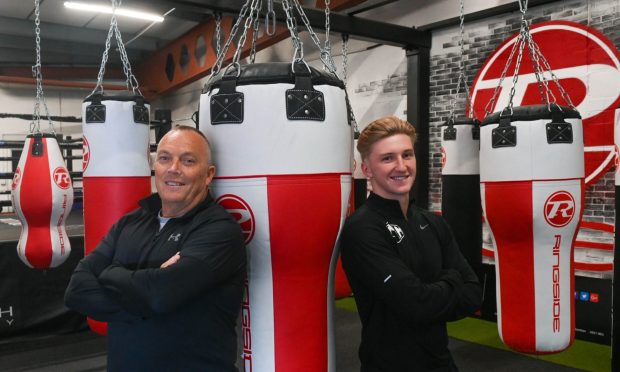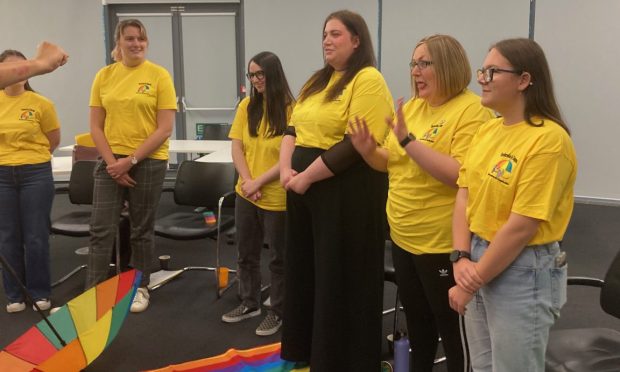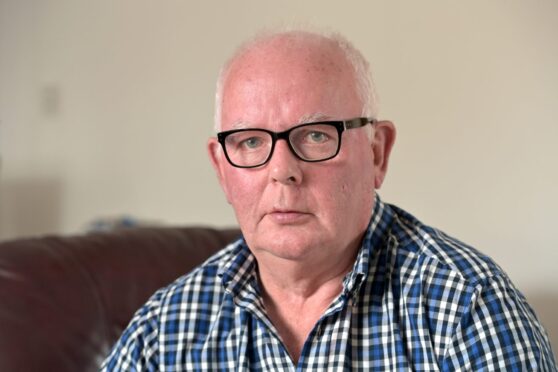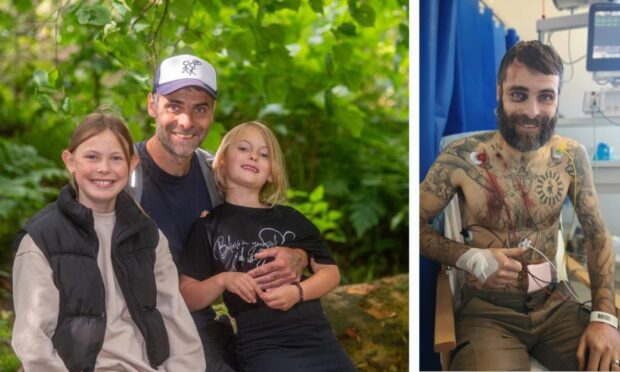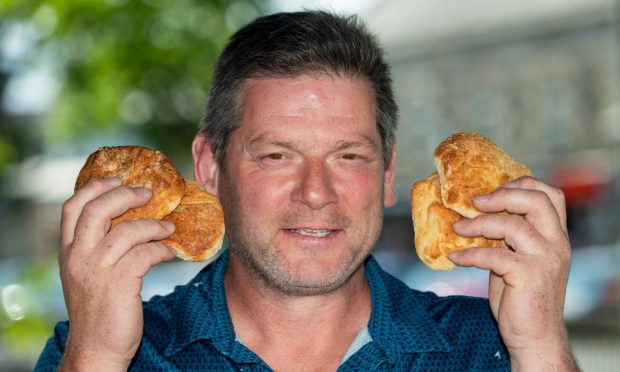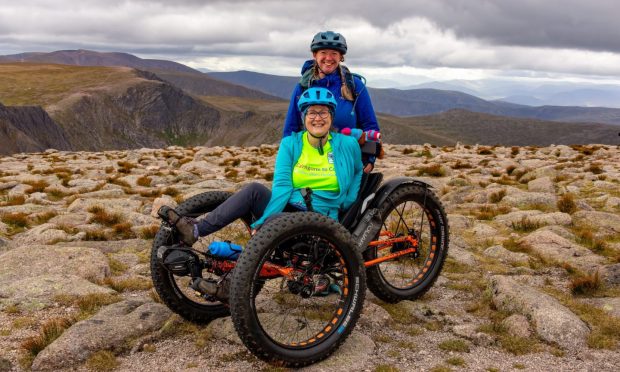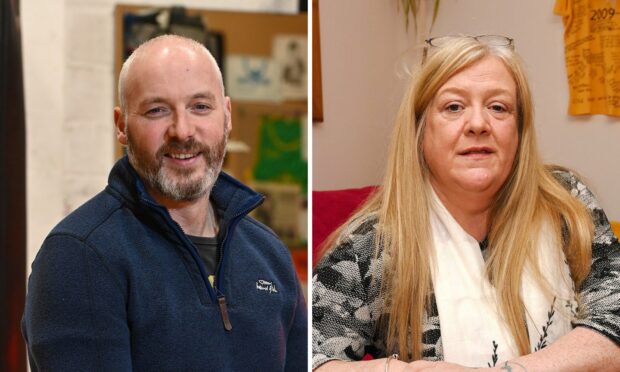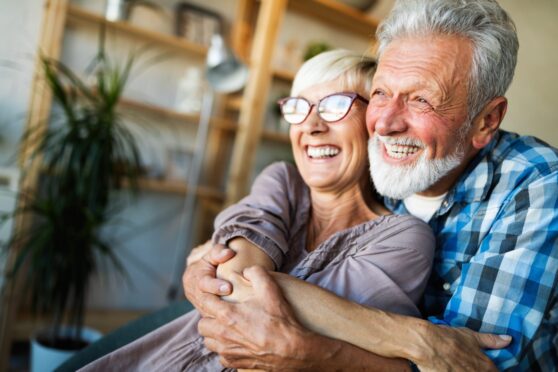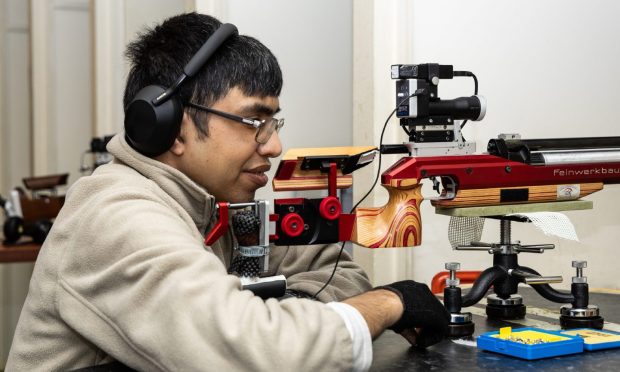Gillian Cockburn knew for years she would feel better if she stopped drinking.
The 52-year-old, of Alford in Aberdeenshire, realised the impact it was having on her life.
But it wasn’t until the pandemic hit in 2020 that the mum-of-one decided to take the leap.
And, after joining the Sober Club, run by BBC Radio presenter Janey Lee Grace, she is now helping other women quit booze for good.
Here Gillian tells her story of why she gave up alcohol, how it’s changed her life and how you can do it too…
I used to think you had to hit rock bottom to stop drinking.
That there was some rule that said you had to wait until your drinking was bad enough before you stopped.
I actually started thinking about giving up drinking nine years ago. I was so adamant, I’d done some research and thought OK, this just makes so much sense.
Then, I was at a wedding and felt peer pressure to let myself be persuaded to drink because I felt there was judgement.
This went on for a few years. There was always that little niggling voice, like a quiet whisper telling me I needed to do something about this.
Why can’t I stop drinking?
I’ve always been very healthy, vegetarian, and do yoga and mindfulness.
But this was the one thing that I thought “Why can’t I get this out of my life; what is happening that I can’t just stop drinking?”
I wasn’t drinking every day. There was a year that I didn’t, and I’d had Dry Januarys and Dry Julys and Sober Octobers – but it never stuck.
Like a lot of people, stress came into my life. My mum died and I really noticed I was drinking more than usual.
‘I had this feeling that a glass of wine would cure it’
There was a couple of glasses of wine most nights and a bit more at the weekend. I wasn’t waking up in the morning thinking I’ve got to get a drink to help me get going, and I wasn’t drinking in secret.
But I was noticing that I could polish off a bottle of wine quite easily.
And I started to think about how easy it was to talk myself into an excuse to have a drink; whether it was just that I was feeling tired, feeling sad because I was missing my mum, overwhelmed or lonely.
It was like I had this feeling that a glass of wine would cure it.
And then, you know, a few years go by and I’m thinking OK, I’m still not in control of this. There’s still something happening here.
Then Covid came. At the beginning of the lockdown, I thought, OK this could be a pivotal moment here – it’s either going to go really well for you or it’s going to go really badly. So I had to make a decision.
I’ve now given up alcohol
I made the decision to stop on May 7, 2020. I decided that enough was enough.
I learned there’s nothing wrong with you if you’re drinking more than you feel that you should be. Alcohol is an addictive drug, and it’s glamorised, and then it’s sold to us as being good for us.
There’s always this idea it’s the only drug that you have to justify not taking.
I didn’t want people to judge me for not drinking and that kept me stuck for a long time.
‘Moderation was exhausting for me’
People talk about moderation. Moderation was exhausting for me – motivation requires control, it requires planning.
You have to think about when you can and can’t drink; how much you can drink, who’s going to drive, when can you drive the next day?
And then it leaves room for failure. And the failure, I think, is what caught me, and shame.
So I was always thinking what’s wrong with me? Why can’t I just stick to my plan of having one or two.
And I thought that if I couldn’t moderate, I must be an alcoholic.
That moderation is the alcohol trap. Freedom from the alcohol trap is making a conscious decision not to drink and then committing fully to it and sticking with it.
Deliberately deciding and committing to not drinking is the most empowering thing.
The evenings were the hardest
The evenings were the hardest, especially during the wintertime and on a Friday night.
And the habit of walking down the supermarket wine aisle and not putting a bottle in your trolley.
That was interesting. I avoided the aisle for a couple of weeks and then one day I thought “Oh, this wine aisle has control over me? This is ridiculous, give yourself a shake.” And now it doesn’t bother me at all.
How did I stop drinking?
Willpower is not something that you should rely on because willpower comes and goes.
There’s what we call surfing the urge which is settling with your feelings.
The tool that I learned to do, which wasn’t easy sometimes, was to just give it 90 seconds. An urge is just an emotion; it’s just a feeling that you’re missing out on something.
An emotion only lasts for 90 seconds. If you choose to hold on to it that’s your choice, but you can actually let an emotion go.
When I learned that, I realised I had an emotion of craving. My brain doesn’t need it; my body doesn’t need alcohol – it’s a poison so I don’t need alcohol in my body.
So we just have to sit with it. And you just have to let that emotion go by, not distract yourself and not run away from it.
I’ve coached a couple of women to do this since I gave up drinking. And I’ve always said to them just stop. Don’t go do anything else. Just stop whatever you’re doing.
Notice what you’re feeling. And when it happens it will pass after 90 seconds – it does actually work.
I did that every time. The first time it probably took a little longer because I didn’t want to give up that urge, my body wanted to hold on to it. But now, if it comes, it’s here for a second and it’s gone. But it’s not really there any more.
Our emotions always start with our thoughts – we have to learn to manage our brain.
Finding friends in the Sober Club
The Sober Club is a club created by Janey Lee Grace. It started with a website and there’s a private Facebook group.
I joined and it’s been great having that support, that connection. When the training came up there were 10 of us who went down to London to train on a six-week training course.
The Sober Club coaching programme focuses on curiosity. Being curious helps the unconscious mind to make a shift from something that seems impossible to possible.
We start by asking about three areas of your life that would improve if you stopped drinking alcohol, keeping it positive so the focus will be on gaining, rather than what you’re losing.
It’s important to visualise what your life would be like if you were free from that alcohol trap.
How it’s changed my life
A lot of people will say it’s like having a second chance at life and that really is the biggest thing.
Your skin improves, your health improves and even your sleep pattern.
My brain is much smarter and I’m sure that’s to do with your gut health which alcohol is really bad for. I can learn things much quicker now.
But I think one of the most important things for me has been my self-esteem; my belief in myself, my belief that I’m worthy, and that I’m just happy being me.
Alcohol keeps us trapped
You’re led to believe that you need to drink to fit in. And, of course, the human brain is hardwired to fear rejection, we long to be part of a tribe.
But I really believe that alcohol keeps us trapped.
The thing that got me most was the fear of judgement. What are other people going to think of me if I stopped drinking? Are they going to think I’ve got a problem?
And they would be right. The big problem was staying small and not living an authentic life. That was my problem.
And then people feel sorry for you and you think OK, they think I’m struggling not to drink here tonight, whether you’re at a wedding, or out socially.
And I’ve had people say to me “It must be terrible, not being able to drink again”.
And I just tell them I can drink any time I want. I just simply choose not to. And it’s just as simple as that.
Gillian works as a life coach and is now helping other women give up alcohol. More details can be found by visiting findyoucoaching.co.uk/sober-coaching
More health news…
Meet the gran who says fitness helped her recover after losing lung to cancer
